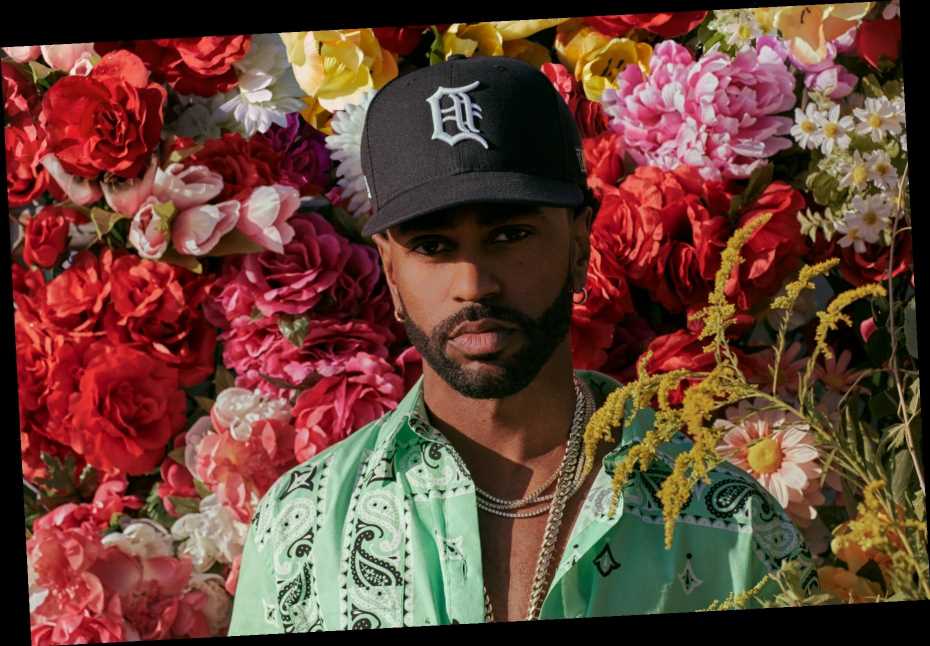Big Sean has a cure for what’s ailing the world. In fact, Sean hawks so many cures on his latest album that it’s hard to keep track. The first one resides on the opening bar of “Why Would I Stop?” when he proclaims: “This shit the antidote, this the ‘cure cancer’ flow/Stop a pandemic and the globe.” As of the time of publication for this post, cancer and the global pandemic are still raging, despite the arrival of Sean’s new flow, but he nevertheless makes his point.
Detroit 2 — the sequel to Sean’s critically acclaimed 2012 mixtape — is a self-help book disguised as a major-label rap album. For 71 minutes, Sean builds a monument to holistic healing, alternative medicine, and religion. There are bars about Dr. Sebi (a.k.a. Alfredo Bowman, a late herbalist who claimed he had a cure for AIDS), Sean’s opened third eye, and even a stray anti-vaxxer line. On “Lucky Me,” Sean devotes a full quarter of his verse to revealing that he had a heart disease at 19, which he says was healed by taking magnesium from a holistic doctor, ending with the lyric “That’s how I know that Western medicine weak.” It’s a riveting pivot, no matter where you land on the wellness question.
Starting in 2011, Big Sean built a hit-making mini-empire using a brand forged from populace-pleasing punchlines, expensive production, pop-star-boyfriend good looks, and a personality that made him easy to dismiss but more fun to root for. The narrative thrust of Big Sean’s career has always been about his proximity to fame. The word defines his discography: three volumes of Finally Famous mixtapes, Finally Famous (the album), Hall of Fame. The hero’s tale that got him here — being plucked from obscurity by Kanye West after a well-timed freestyle — is inextricable from his legend. When Detroit 2 takes Sean’s examination of fame to its gruesome, but logical conclusion, it’s a genuine shock. Across his first solo album since 2017, Sean grapples with the reality that the same celebrity life he chased for so long also led to him pondering suicide. Now presumably on the other side of that darkness, the Midwest rapper offers us a life-coach seminar about what healed him along the way.
There’s a distinct tension on Detroit 2 as Big Sean tries to balance his present motivational myths with the morbid thoughts and memories of his past. “Look, I ain’t think I had the thought of suicide in me/Until life showed me all these different sides of me,” he raps on “Deep Reverence.” Across the project, Sean gives quick glimpses of various tragedies and illnesses that never linger. There are mentions of anxiety, a miscarriage with a partner, and deceased family members, but as soon as they arrive, they dissipate, as if spending more than one or two bars on these life-altering events would give the audience too much information. Those dour moments also tend to be punctuated by the grandiosity of the beats from Hit-Boy, Boi-1da, and DJ Dahi, making even the most depressing moments semi-aspirational.
Detroit 2 is a polarizing and polarized text. It contains a long list of forces that unmoored Sean (social media, mental illness, money, trappings of celebrity) and an even longer list of things that helped him (Eastern medicine, meditation, a committed relationship, spirituality). As vulnerable as the album seems on the surface, it’s ultimately a guarded work. Every painful lyric is defused with a comedic punchline. Bouts of failure are dismissed with overpowering examples of success. Part of the allure of self-help texts, wellness guides, motivational coaches, and many religions is that they commodify amorphous ideas like peace and happiness. The wellness industry alone is estimated to be worth $4.2 trillion globally, while the self-help industry has been ballparked at $13.2 billion in the U.S. by 2022 — and Detroit 2 seems birthed within this framework
On “Feed,” Sean underlines the album’s central premise: “The best part ’bout problems is problems all come with solutions.” In the world of Detroit 2, there’s always an answer. It’s a place where every pain can be fixed, any heart can be mended, and all obstacles are surmountable. There’s little room for skepticism or negativity. Maybe, for Sean, that’s the point. In 2020, there is victory in survival. The fact that Sean is still here matters most. Debating how he completed that journey, less so.
Source: Read Full Article
